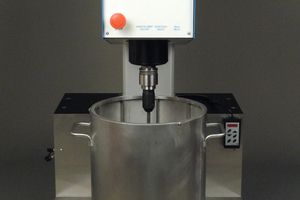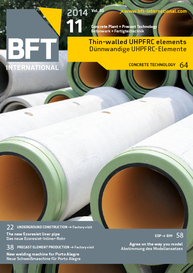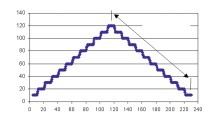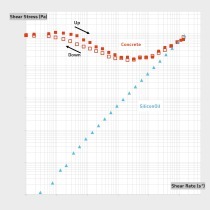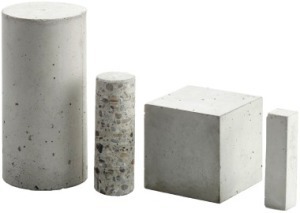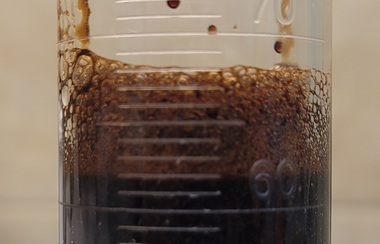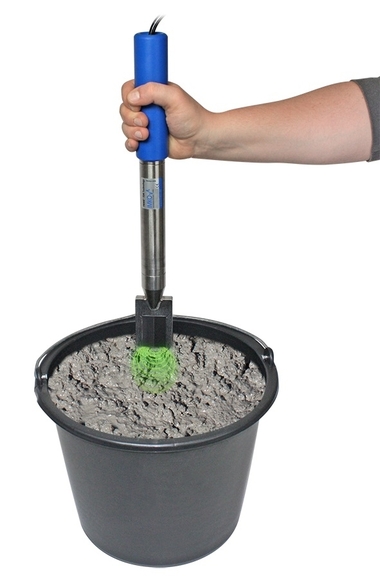Rheometer for concrete and mortar quality control
The latest addition to the RheoCAD range of rheometers for concrete and mortar, the RheoCAD450, is mainly designed for quality control labs and field tests. It provides a high-level standard measurement combined with a robust design. The four-decade rotation speed range provides the user with various ways of characterizing its building materials, from very low to high apparent viscosity.
The RheoCAD450 comes with a 24 liter bowl (diameter 300 mm) and two measuring devices: a vane (diameter 120 mm) and a double helix (diameter 160 mm). Both combinations make it possible to measure samples with aggregates up to 20 mm in diameter. A quick protocol based on an alternate decreasing-increasing ramp allows the user to test any type of sample under the same conditions. Torque measurement is recorded and yield stress or plastic viscosity can be extracted from the flow curves. Speed is controlled from 0.01 rpm to 250 rpm. Software and data export are also provided.

